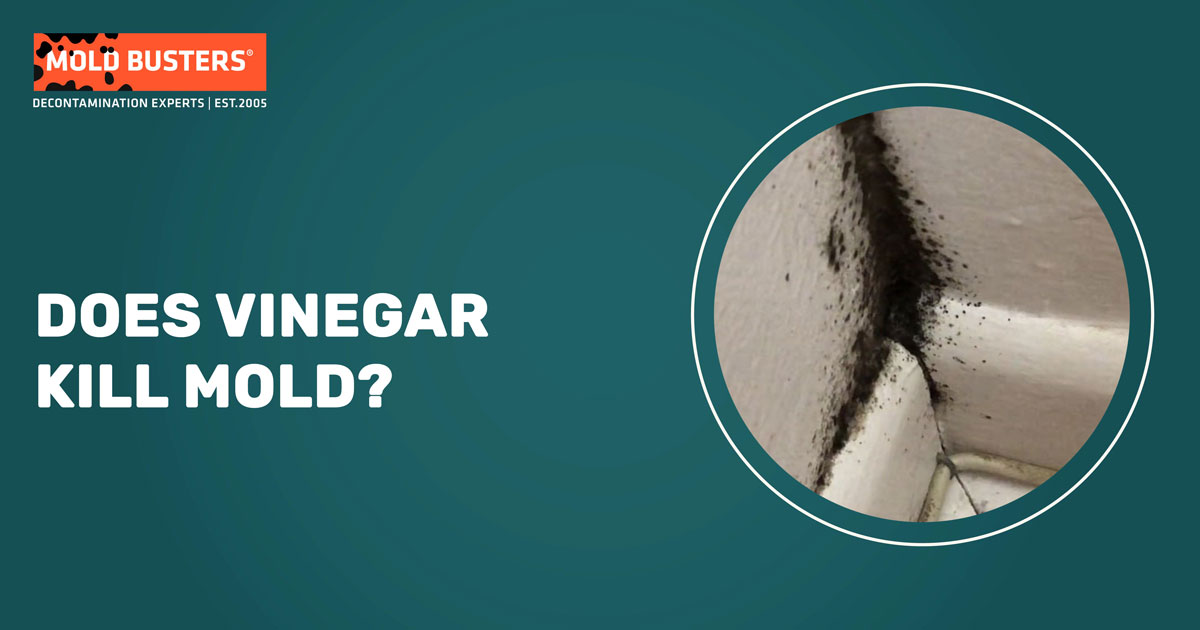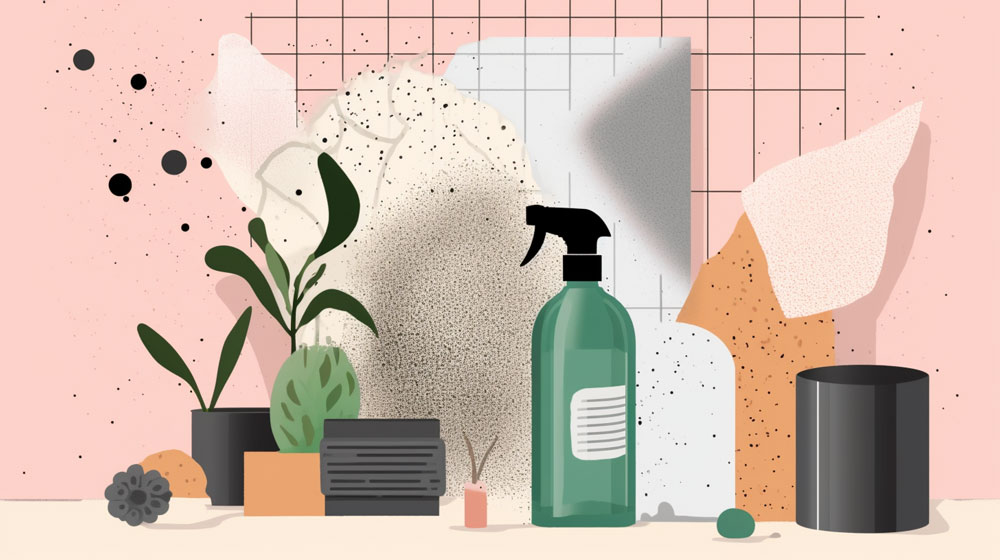Does Vinegar Kill Mold?
Unveiling the Truth About Vinegar and Mold Removal
Are you wondering whether vinegar can effectively kill mold in your home? In this comprehensive guide, we’ll explore the power of vinegar in removing various types of mold on different surfaces, as well as its limitations.
We’ll also discuss preventive measures to keep mold at bay, and when it’s time to seek professional mold remediation services. With a focus on both DIY techniques and professional solutions, this article aims to answer all your mold-related questions and help you maintain a healthy living environment.
Key Takeaways
- Vinegar, containing acetic acid, can effectively kill various types of mold, such as pink, white, and green mold, on non-porous surfaces like glass, tiles, and metal.
- The effectiveness of vinegar on porous materials like wood, drywall, and carpet is limited, as it may not fully penetrate the surface, leading to potential mold regrowth.
- Vinegar may not be as effective in killing certain mold species like black mold (Stachybotrys chartarum), and professional remediation may be necessary for severe infestations.
- Regular cleaning with vinegar can help prevent mold growth, particularly in high-humidity areas like bathrooms and kitchens.
- When facing persistent or severe mold issues, it’s essential to seek professional mold remediation services to ensure complete removal and prevent future growth.
- Mold prevention and maintenance are crucial for maintaining a healthy living environment. Implement proper ventilation, moisture control, and regular inspections to reduce the risk of mold-related problems.
Contents
- Unveiling the Truth About Vinegar and Mold Removal
- Key Takeaways
- Understanding Mold
- Vinegar as a Mold-Killing Agent
- Does Vinegar Kill Different Types of Mold on Various Surfaces?
- DIY Mold Removal with Vinegar
- Limitations of Vinegar for Mold Removal
- Safety Precautions of Using Vinegar
- Mold Prevention and Maintenance
- When to Seek Professional Mold Remediation
- FAQ
- Conclusion
10% OFF
Schedule services online and save!
Available for home owners, landlords, businesses & property managers. If you are a tenant, please call to schedule your appointment.
YOUR PROMO CODE
MARCH10
Valid until March 31st, 2023

Understanding Mold
Mold is a type of fungus that can grow both indoors and outdoors. It thrives in damp, humid environments and can cause various problems if left unchecked.
Types of Mold
There are thousands of mold species, but some common indoor molds include:
- Aspergillus
- Cladosporium
- Penicillium
- Stachybotrys chartarum (also known as black mold)
Causes of Mold Growth
Mold growth can be triggered by a variety of factors:
- Excess moisture or humidity
- Poor ventilation
- Water leaks or damage
- Flooding
- Condensation
Health Effects of Mold Exposure
Exposure to mold can lead to a range of health issues, especially for people with allergies, asthma, or weakened immune systems. Some potential health effects include:
- Allergic reactions (sneezing, runny nose, itchy eyes)
- Respiratory issues (wheezing, difficulty breathing)
- Asthma attacks
- Sinus infections
- Skin irritations
Vinegar as a Mold-Killing Agent
Vinegar is a versatile household product with a variety of uses, including cleaning and disinfecting. It contains acetic acid, which is effective in killing mold on certain surfaces.
Types of Vinegar
There are various types of vinegar, but for mold removal purposes, we recommend using:
- White vinegar: A clear vinegar with a strong odor, commonly used for cleaning
- Apple cider vinegar: A brownish vinegar with a milder smell, also effective in killing mold
Acetic Acid: The Active Ingredient in Vinegar
Acetic acid is the component in vinegar responsible for its mold-killing properties. Most household vinegars contain about 5% acetic acid, which is strong enough to kill many types of mold.
Does Vinegar Kill Different Types of Mold on Various Surfaces?
In this section, we will explore the effectiveness of vinegar in killing different types of mold and its suitability for various surfaces.

Does Vinegar Kill Black Mold and Other Mold Colors?
Black mold (Stachybotrys chartarum)
Vinegar can kill some black mold, but it might not be as effective as other mold removal methods, especially for deeply embedded mold. Professional remediation is recommended for severe black mold infestations.
Pink mold
Vinegar is effective in killing pink mold, which is actually a type of bacteria (Serratia marcescens) commonly found in bathrooms.
White mold and green mold
Vinegar is effective in killing both white and green mold, as these are generally less resistant to acetic acid.
Does Vinegar Kill Mold on Various Surfaces and Items?
While vinegar is effective in killing mold on non-porous surfaces, it may not completely remove mold from porous materials, like wood or drywall. In comparison to bleach, vinegar is a safer and more environmentally friendly option. However, it may not be as effective against certain mold species or on deeply embedded mold.
| Surface/Item | Effectiveness of Vinegar | Considerations |
| Non-porous surfaces (glass, tiles, metal) | Effective | Vinegar is effective in killing mold on non-porous surfaces like glass, tiles, and metal. |
| Porous surfaces (wood, drywall, carpet) | Limited | Vinegar may not fully penetrate porous materials, which can result in mold regrowth. Professional remediation may be necessary for severe mold issues. |
| Air conditioners | Effective | Vinegar can help clean and kill mold in air conditioner units. Regular maintenance and cleaning of the filters, coils, and drip pans are essential to prevent mold growth. |
| Basement walls | Effective (non-porous surfaces) | Vinegar can be used to kill mold on basement walls, especially on non-porous surfaces like concrete. However, for porous surfaces like drywall or wood, vinegar might not be as effective. |
| Crawl spaces | Effective | Vinegar can be used to kill mold in crawl spaces, but ensure proper ventilation and moisture control to prevent future mold growth. |
| Coffee makers | Effective | Vinegar can be used to clean and kill mold in coffee makers. Running a vinegar solution through the coffee maker can help eliminate mold and bacteria buildup. |
| Brick | Effective | Vinegar is effective in killing mold on brick surfaces. However, ensure you rinse the area thoroughly with water after using vinegar to prevent any potential damage to the brick. |
| Clothes | Effective | Vinegar can be used to kill mold on clothes by adding it to the washing machine during the rinse cycle. However, test the fabric for colorfastness before using vinegar, as it may cause discoloration. |
| Bathroom | Effective | Vinegar is effective in killing mold on bathroom surfaces like tiles, grout, and fixtures. Regular cleaning with vinegar can help prevent mold growth in high-humidity areas. |
| Plants (powdery mildew) | Effective | Vinegar can help control powdery mildew, a type of mold that affects plants. A diluted vinegar solution can be sprayed on the affected plants to help reduce the spread of powdery mildew. |
Note: The effectiveness of vinegar may vary depending on the type of mold and the surface it is growing on. Always test a small, inconspicuous area before using vinegar on any surface, and consider alternative methods or professional remediation for severe mold issues.
DIY Mold Removal with Vinegar
Before attempting mold removal, ensure you take the necessary safety precautions, such as wearing gloves, masks, and eye protection. Follow these steps for using vinegar to remove mold:
- Prepare a vinegar and water solution: Mix equal parts water and vinegar in a spray bottle or bucket.
- Apply the solution: For non-porous surfaces, like tiles or glass, spray the solution directly onto the moldy area. For porous surfaces, like wood or drywall, use a cloth or sponge soaked in the solution to dab the moldy area.
- Let the solution sit: Allow the vinegar solution to sit for at least 30 minutes to an hour.
- Scrub the area: Use a brush or sponge to scrub away the mold. Be gentle on porous surfaces to avoid causing further damage.
- Rinse and dry: Wipe the area clean with water and dry it thoroughly to prevent mold regrowth.
Limitations of Vinegar for Mold Removal
While vinegar can be an effective DIY mold removal solution, it has certain limitations:
- Porous materials: Vinegar may not fully penetrate porous surfaces like wood or drywall, which can result in mold regrowth.
- Mold spores: Vinegar can kill mold, but it doesn’t always eliminate mold spores, which can lead to future mold growth.
- Effectiveness against certain mold species: Vinegar may not be as effective in killing some types of mold, such as Stachybotrys chartarum (black mold).
- Odor: Vinegar has a strong odor, which some people may find unpleasant during the cleaning process.
Worried About Mold in Your Home? Get a Free Inspection!
While vinegar can help with minor mold issues, persistent or severe mold requires professional attention. Contact Mold Busters for a free virtual mold inspection. Our experts will provide a comprehensive assessment and plan to ensure your home is safe and healthy. Act now to protect your space!
Book Your Free Virtual Inspection NowSafety Precautions of Using Vinegar
While vinegar is generally safe and non-toxic, there are still some safety precautions to keep in mind when using it as a cleaning agent for mold removal:
- Wear gloves: Although vinegar is mild, it can still cause skin irritation for some people. Wearing gloves when using vinegar for cleaning can protect your skin from any potential irritation.
- Proper ventilation: Vinegar has a strong odor that some may find unpleasant or irritating. When using vinegar, ensure proper ventilation by opening windows and doors to allow fresh air to circulate.
- Avoid mixing with other cleaning agents: Mixing vinegar with other cleaning agents, particularly bleach, can produce toxic chlorine gas. It is essential to avoid combining vinegar with bleach or other potentially harmful chemicals.
- Test on a small, inconspicuous area: Before using vinegar on any surface, test it on a small, hidden area to ensure it won’t cause damage or discoloration. Some surfaces or materials may be sensitive to vinegar’s acidity.
- Dilute vinegar: For some cleaning applications, it might be helpful to dilute vinegar with water. Using a diluted vinegar solution can help reduce the strong smell and lower the risk of damage to certain surfaces.
- Rinse thoroughly: After using vinegar to clean mold or other substances, be sure to rinse the area thoroughly with water to remove any vinegar residue. This is especially important for surfaces like brick or natural stone, which may be sensitive to vinegar’s acidity.
- Keep out of reach of children and pets: While vinegar is non-toxic, it’s still essential to store it out of reach of children and pets to prevent accidental ingestion or exposure.
By following these safety precautions, you can effectively and safely use vinegar for mold removal and other cleaning tasks around your home.
Mold Prevention and Maintenance
Preventing mold growth is crucial for maintaining a healthy living environment. Follow these tips to reduce the risk of mold in your home:
- Ensure proper ventilation in high-humidity areas, like bathrooms and kitchens.
- Use a dehumidifier or air conditioner to maintain humidity levels below 60%.
- Regularly clean and inspect your home for signs of mold or moisture issues.
- Fix any water leaks or damage promptly.
- Keep gutters clean and ensure proper drainage around your home.
When to Seek Professional Mold Remediation
While DIY mold removal methods can be effective for small-scale mold problems, professional mold remediation services may be necessary in certain situations:
- The mold problem is extensive or covers a large area.
- There are signs of water damage or a recurring moisture issue.
- Mold growth persists despite multiple attempts at DIY removal.
- Individuals in your home are experiencing severe health symptoms related to mold exposure.
As a trusted provider of professional mold services in Ottawa and Montreal, Mold Busters offers expertise and experience in addressing mold issues. Our comprehensive range of services ensures that we can effectively tackle any mold problem.
If you’re unsure about the extent of your mold problem, consider using our virtual inspection service. This can help you determine whether professional remediation is necessary.
Our Services
Our most popular services include:
🔎 Request a Free Consultation
FAQ
Vinegar is effective in killing mold on non-porous surfaces like glass, tiles, and metal. However, its effectiveness is limited on porous materials like wood, drywall, and carpet, as it may not fully penetrate these surfaces, leading to potential mold regrowth.
Yes, vinegar is a safe and non-toxic cleaning agent that can be used around children and pets. However, it has a strong odor that some may find unpleasant. Always ensure proper ventilation when using vinegar and store it out of reach of children and pets.
While vinegar can be combined with some cleaning agents, it is essential to avoid mixing it with bleach, as this can produce toxic chlorine gas. If you are unsure about mixing vinegar with other cleaning products, it is best to use vinegar alone or consult the manufacturer’s instructions.
Regular cleaning with vinegar can help prevent mold growth, especially in high-humidity areas like bathrooms and kitchens. Using a vinegar solution to clean surfaces once a week or as needed can help keep mold at bay.
Vinegar contains acetic acid, which is effective in killing mold by breaking down its cellular structure. The acidic nature of vinegar disrupts the mold’s growth and destroys the enzymes it requires to survive. This helps in eliminating the mold from the treated surfaces.
While vinegar can effectively kill mold on non-porous surfaces, it may not completely eliminate mold on porous materials like wood, drywall, and carpet. Mold spores can still remain, leading to potential mold regrowth. To ensure mold is permanently removed, proper moisture control and regular cleaning are essential, and professional mold remediation services may be necessary for severe mold issues.

Conclusion
While vinegar can be an effective DIY solution for killing mold on certain surfaces, it may not be suitable for all situations. By taking preventive measures and monitoring your home for signs of mold, you can reduce the risk of mold-related problems.
If you’re facing a persistent or severe mold issue, don’t hesitate to reach out to Mold Busters for professional mold remediation services in Ottawa and Montreal areas. Our team of experts is dedicated to ensuring your home remains mold-free and healthy for you and your family.